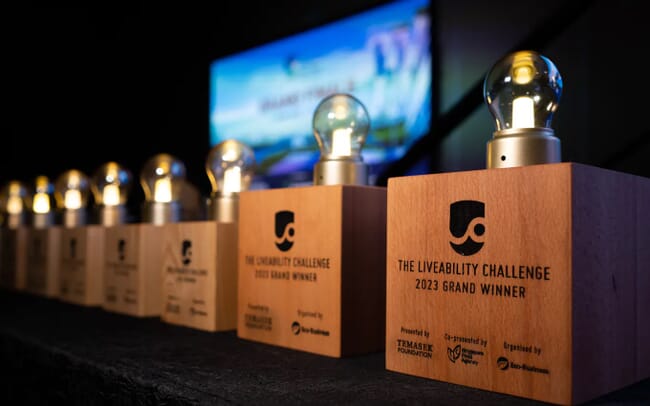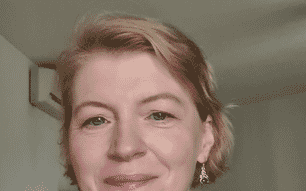
With a doubling of the grand prize money this year, along with additional investment funding, the sustainability innovation challenge funded three teams with a total of S$2.6 million (USD$1.9 million)
Singapore-based TeOra is developing an orally delivered vaccine to prevent and treat scale-drop disease virus in farmed fish, while US-based Susteon is working on capturing point-source carbon emissions and utilising waste hydrogen to produce low-cost methane.
At this year’s sixth edition of The Liveability Challenge – a global platform that supports the commercialisation of innovative and sustainable solutions to the challenges of urban cities – these two solutions emerged as the top winners in the food and nutrition and climate change tracks for their sizeable climate mitigation potential, forays in underinvested sectors and credibility of ideas through extensive testing and pilot projects.
“Winning The Liveability Challenge brings recognition to our work and enables us to bring futuristic solutions into reality today," said Dr Rishita Changede, founder of TeOra, in a press release. "We are now taking a big step up from working with shrimps to fish. If we can prove the technology works, there is almost unlimited potential for scale-up.”
Mr Lim Hock Chuan, head of programmes at Temasek Foundation, who presented this year’s edition of The Liveability Challenge, believes Susteon’s proposal is a potential game-changer by reducing 20 percent of Singapore’s total carbon emissions, while contributing to energy security.
He added: “We are also excited about the prospects of enhanced food security, safety and resource efficiency, brought about by TeOra’s vaccine technology. Besides treating seabass, it can also develop vaccines for other fish which will significantly reduce disease-related mortality in aquaculture systems.”
The eight teams featured at the grand finale were chosen after a rigorous selection process. Each finalist pitched their innovations live to a panel of established investors, who also awarded investment prizes to three of the finalists:
- TeOra received an additional S$100,000 (USD$74,437) investment from PeakBridge VC
- Susteon received an additional S$100,000 (USD$74,437) investment from TRIREC
- Seaforestation.Co received an investment of S$100,000 (USD$74,437) each from Quest Ventures and Rumah Group. The startup also received a S$200,000 (USD$148,870) investment from Planet Rise. The Philippines-based business is using deep-sea marine permaculture to accelerate the regeneration of seaweed forests, which removes atmospheric carbon and acts as feedstock for bioplastics.
Green finance and technological innovations, for both fighting climate change and adapting to its impacts, are urgently needed Asia. This is why the 2023 edition of The Liveability Challenge focused on two tracks critical to making Asia’s cities more sustainable: climate change, as well as food and nutrition.
The Liveability Challenge worked with 70 organisations across the globe to crowdsource the best sustainability ideas and offer support to emerging startups. After a six-month search for the best sustainability solutions, two steering committees convened to select the best startups in each track.
Representing various countries, such as Singapore, the United States, Israel and the Philippines, the eight finalists were shortlisted for their innovative solutions on climate change and food and nutrition. The judging panel were impressed with the teams’ efforts in advancing cutting-edge science, crafting business models that leverage the clean-tech ecosystem in Singapore, and their potential to scale at a global level.
“Climate risks and food security are two of the most pressing issues Asian cities will face in the coming years. It is crucial that we channel finance and provide support to the breakthrough innovations that address the unique characteristics and challenges faced by the region,” concluded Ms Jessica Cheam, founder and managing director of Eco-Business, organisers of The Liveability Challenge.




